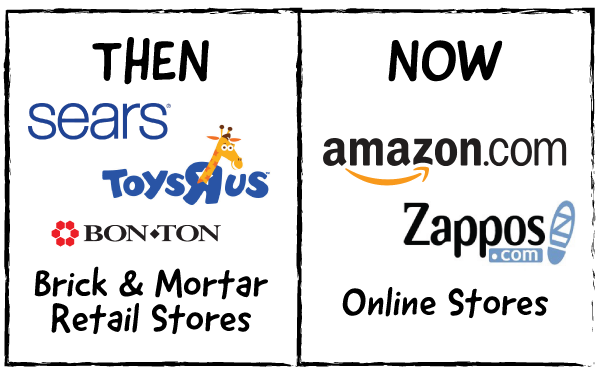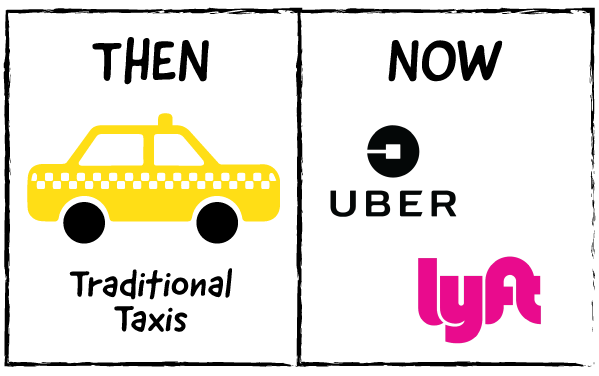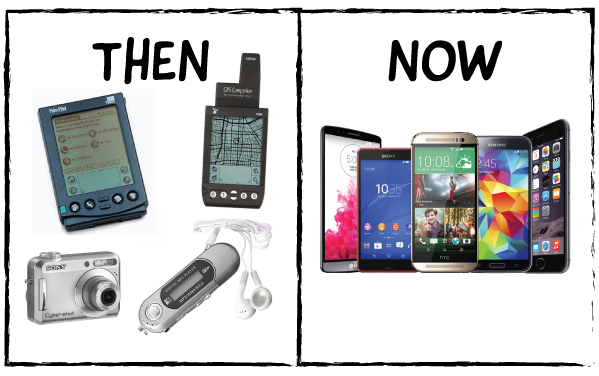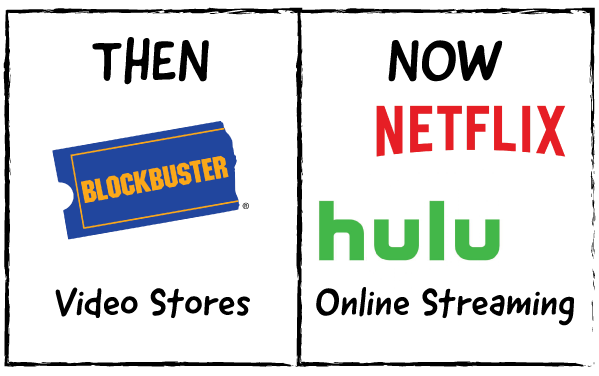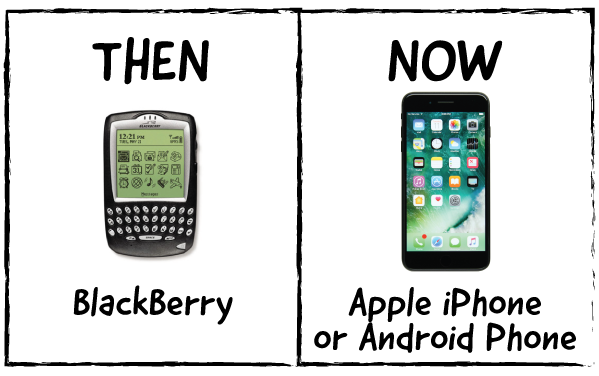How many times have you heard “but, we’ve always done it this way!” proclaimed in your organization regarding your processes or service offerings? Change is hard. And regardless of whether we’re motivated by our negative emotions, or simply underestimate the process of change, it ultimately seems easier to stay with the status quo.
But we can’t.
From the business standpoint, we need to be willing to change, to grow. If we don’t, someone else will come up with something new, something innovative, and put us right out of business.
Historically, this happens all the time – new players emerge that make others irrelevant or less attractive.
But… how exactly does this apply to the relocation supply chain?
When it comes to change in the relocation supply chain, innovation typically takes place in the form of technological advancements. For example, when shipping household goods, there have been some changes in terms of electronic logs, video surveys, and truck technology; however, the physical logistics of the move are still very much the same as they’ve always been. Physical labor is needed to collect the goods, put them on trucks, transport them, and unpack them in the new location.
Most corporations that relocate employees have contracts with household goods carriers. Those corporations then allocate moves on a rotational basis between the carriers, which seems like a reasonable approach, but what happens when a carrier is too busy or doesn’t have the equipment available for that particular move? They have to either pass on the move, accept the move and “figure it out,” or call in a partner through their network. While this can work, it is not the most efficient or most practical approach.
MMP™ and the Impact to Vendors
When van lines agree to moves that they simply can’t handle, it can cause serious issues for your relocating employees. That’s exactly why WHR developed an advanced technology platform, MMP™, that allows household goods carriers to choose moves that work best for their time frames and traffic lanes. Rather than send orders out to movers, our technology grants movers the opportunity to select moves deemed most desirable to them. It is really an “opportunity board” that gives movers choice and provides them with a strategic advantage to view shipments before accepting, allowing them to avoid deadheading and overbooking.
One of the most expensive costs a trucking company frequently absorbs is “deadheading,” or driving an empty truck back to its home base. WHR’s opportunity board allows dispatchers to view open moves so they can schedule loads that will work for return trips. The elimination of deadhead trips means trucks become more productive and profitable.
The MMP™ Impact to Clients
The client benefits are tremendous. Since implementing MMP™, WHR’s clients save 26-42% per move with 43% lower move claims average, and 98% employee satisfaction ratings. This system allows our specialists to select the best carrier option based on price and historical performance, for each employee’s unique move needs. Supplier performance standards include employee satisfaction rating, timeliness, and performance.
With MMP™, everybody wins. Your employees receive the best dedicated crews for service compliance, and you receive best-in-class pricing for all household goods moves.
Yes, change can be hard. If there’s a better approach to doing things, wouldn’t you rather work with the person embracing that? Companies must be willing to change and grow in order to stay relevant, which is exactly what WHR is doing. We see a potential problem or complicated process and implement a solution, regardless of whether that is in the form of a technological advancement, new process, or service offering.
Click here to learn more about MMP™ or contact us today to find out other new and innovative ways WHR Group is helping advance the relocation industry.

